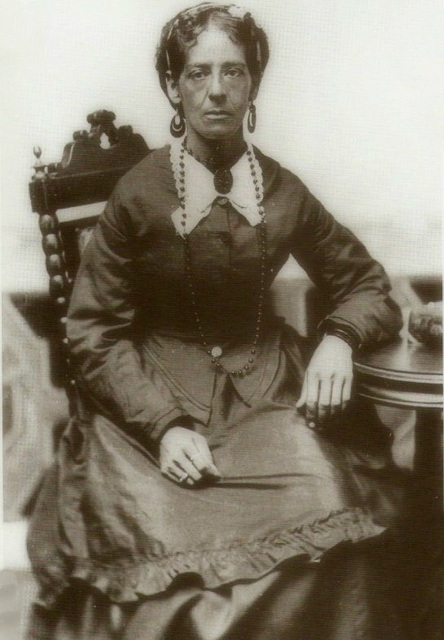Elisa Greenwell
Malvina 'Viney' Russell
"We Are Literally Slaves" An Early 20th Century B…
Mr. and Mrs. Henson
The Cazenovia Anti-Fugitive Slave Act Convention,…
From Slavery to Freedom to Prosperity
Picking Cotton on Alex Knox's Plantation
A Loving Daughter: Nellie Arnold Plummer
John Roy Lynch
Alvin Coffey
Enslaved No More: Wallace Turnage
Pedro Tovookan Parris
The 1st by 17 Years: The Story of Harry S. Murphy,…
Segregated to the Anteroom
Standing Tall Amid the Glares
We Finish to Begin
Give Me An 'A'!
Bertha Josephine Blue
McIntire's Childrens Home Baseball Team
Edith Irby Jones
One Little Girl
Tennessee Town Kindergarten
Julie Hayden
Lewis Hayden
Josephine Braham Johnson
Mr. and Mrs. Hancock
Behind Union Lines
Isabella Gibbons
William 'Billy' Walker
Addison White
Ezekiel Gillespie
Adam Francis Plummer
Randolph Miller
Emancipators
Thomas W Burton, MD
Cudjoe Kossula Lewis: "The Last African-American A…
Caroline's Escape
David Ware
Wanderers No More
James Collins Johnson: Princeton's Property No Mor…
Howard Henriques Smith
Hero of Richmond Theater Disaster
The Story of James Henry Brooks
Ann Bicknell Ellis
Nelson Gant
See also...
Authorizations, license
-
Visible by: Everyone -
All rights reserved
-
21 visits
Nancy Weston


She lived in Charleston, South Carolina, in the 1850s as a free woman of color. However, in order to satisfy the laws of the state, she was a nominal slave legally owned by a white friend.
Nancy had three sons (Archibald who became an attorney, Francis who became a minister and John ) by her white enslaver Henry W. Grimké, a widower. Henry was a member of a prominent, large slaveholding family in Charleston. His father and relatives were planters and active in political and social circles. Henry acknowledged his sons, although he did not manumit (free) them, or make the rest of his family aware of their existence.
Sources: The Face of Our Past: Images of Black Women from Colonial America to the Present edited by Kathleen Thompson and Hilary Mac Austin; Lift up Thy Voice: The Grimké Family's Journey from Slaveholders to Civil Rights Leaders by Mark Perry (2001)
Nancy had three sons (Archibald who became an attorney, Francis who became a minister and John ) by her white enslaver Henry W. Grimké, a widower. Henry was a member of a prominent, large slaveholding family in Charleston. His father and relatives were planters and active in political and social circles. Henry acknowledged his sons, although he did not manumit (free) them, or make the rest of his family aware of their existence.
Sources: The Face of Our Past: Images of Black Women from Colonial America to the Present edited by Kathleen Thompson and Hilary Mac Austin; Lift up Thy Voice: The Grimké Family's Journey from Slaveholders to Civil Rights Leaders by Mark Perry (2001)
- Keyboard shortcuts:
Jump to top
RSS feed- Latest comments - Subscribe to the comment feeds of this photo
- ipernity © 2007-2024
- Help & Contact
|
Club news
|
About ipernity
|
History |
ipernity Club & Prices |
Guide of good conduct
Donate | Group guidelines | Privacy policy | Terms of use | Statutes | In memoria -
Facebook
Twitter
